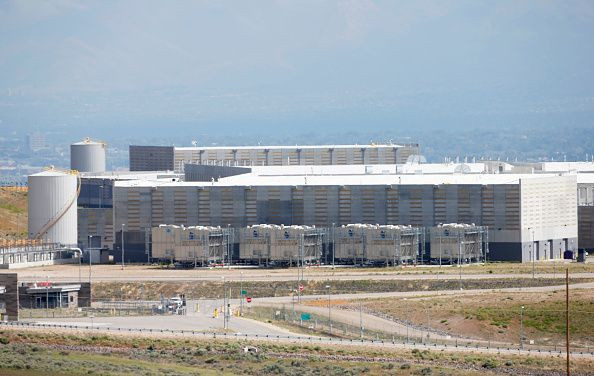NSA Wins Approval For 6 More Months Of Bulk Telephone Data Collection

The National Security Agency received permission to maintain its controversial bulk telephone data collection program for six months, documents released Tuesday reveal. According to the Foreign Intelligence Surveillance Court ruling, the spy agency can temporarily continue vacuuming up American citizens' phone records, including the time, location, duration and recipients of calls. The program does not collect the spoken content of calls.
In 2013, former NSA contractor Edward Snowden leaked details of the previously undisclosed program to the media, sparking a pitched nationwide debate. Critics of the warrantless collection program argue that the information gleaned from such surveillance can provide a rich portrait of a person's daily activities, creating a situation ripe for abuses of privacy.
On June 1, Section 215 of the Patriot Act, the statute justifying the dragnet, expired. Congress rushed to pass the Freedom Act, which ends bulk collection but revives Section 215 for a six-month window designed to give intelligence agencies time to update their systems.
Under the newly approved arrangement, private phone companies like Verizon will maintain the relevant records, which they already collect for billing purposes. Interested intelligence agencies will be required to receive federal surveillance warrants to access the databases.
But the six-month extension seemingly conflicts with a circuit court ruling in May that found Section 215 of the Patriot Act insufficient to justify the bulk collection of telephone records. The surveillance court ruling Monday, first reported by the New York Times, references the other court's previous decision, but offers a differing opinion.
"This court respectfully disagrees with that court’s analysis, especially in view of the intervening enactment of the U.S.A. Freedom Act," wrote Judge Michael Mosman of the surveillance court. The Foreign Intelligence Surveillance Court was established in 1978 to review and grant warrant requests from domestic spying operations.
The American Civil Liberties Union has asked the Court of Appeals for the Second Circuit to rule on the temporary program in response to the surveillance court's decision this week. In the meantime, the wholesale collection of Americans' phone records will continue.
© Copyright IBTimes 2024. All rights reserved.






















